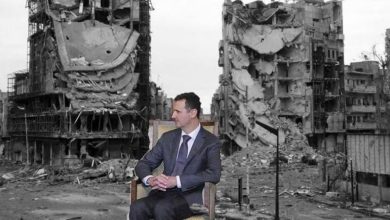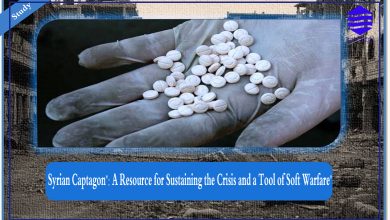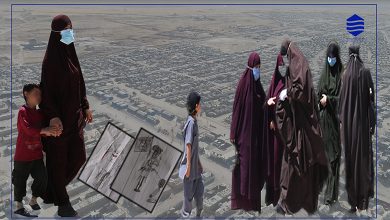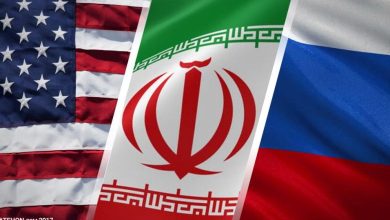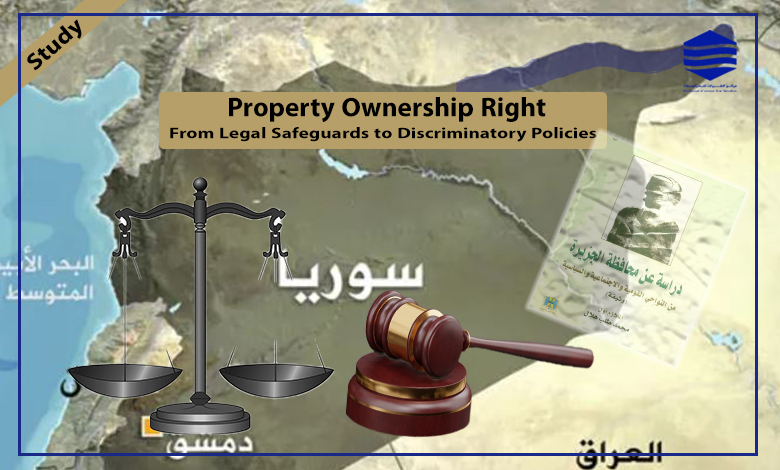
Property Ownership Right.. (From Legal Safeguards to Discriminatory Policies)
The issue of real property disputes and violations of individual property ownership rights in Syria dates back to the 1950s. It is not solely a result of the ongoing armed conflict that has engulfed the country for over a decade. Whereas numerous legislative laws, decrees, and administrative decisions have been issued, sometimes depriving Syrian citizens of their right to ownership and at other times restricting the authority of property owners regarding their property, particularly through real estate legislations issued since the Baath Party came to power in Syria.
The right of ownership occupies the forefront of principal real rights[1] due to its complexity and extensive scope. Additionally, it is one of the oldest subjects in law history, having captured the attention of all societies, with fierce competition among individuals to acquire it since ancient times until today.[2] The intensity of this competition becomes even greater when the subject of ownership involves real estate, which is considered to hold higher financial value than movable property, as it represents a lasting source of wealth[3]. Given this significant value associated with the right of ownership, it has been revered in various ancient and modern legal systems, and international treaties, constitutions, and man-made laws have hastened to protect it.
The Syrian legislator has specifically addressed the right of private real estate ownership in the Civil Code and the Real Estate Registration Law, establishing a legal framework for property rights. Through these laws, the legislator aims to regulate this right and ensure the preservation of this sacred right, which grants the owner extensive authority to possess and benefit from the property in all ways and all the available legal actions without any interference from others.
When studying the history of the evolution of real estate legislation in modern Syria, it can be divided into two main stages:
The first stage: It starts from the establishment of the Syrian state in 1920 until the issuance of the Syrian Civil Law in 1949. This period coincides with the French mandate. During this phase, Syrian real estate legislation was established (Decree 3339 issued by the French High Commissioner[4]) as well as the system of real estate registration, which culminated in the issuance of the Syrian Civil Law in 1949.
The second stage: It properly began in 1950 and extends to the present day, encompassing the period of military coups and the current Syrian war, passing through the era of unity with Egypt and the Baath Party’s control over power in Syria. During this period, nationalistic tendencies and socialist orientations emerged in politics and the constitutions that were established at that time. These constitutions considered property rights as an element of national wealth, which influenced the legislative policy in Syria, especially in terms of real estate legislation.
In this later stage, several legislative laws, decrees, and administrative decisions were issued, imposing restrictions on the right of real property ownership, even to the extent of depriving Syrian citizens of ownership rights in some cases. Examples include cases like “Foreigners of Al-Hasakah”, property acquisition laws, nationalization, land reform, the seizure of properties in border areas, and other exceptional laws that limited the owner’s authority over their property.
In this stage, specifically in the early 1960s, an officer in the Political Security Branch in Al-Hasakah, named “Mohammed Talab Hilal,” prepared a study titled “A Study of Al-Jazeera Province: From National, Social, and Political Aspects.[5]” Based on his study, the officer proposed several suggestions, the most important of which were as follows (as mentioned in the study):
- Relying on internal displacement processes, along with internal distribution, and considering that the overwhelming majority of Kurds residing in Al-Jazeera hold Turkish citizenship, it is necessary to rectify the civil records, which is currently underway.
- Blocking job opportunities: It is essential for us to contribute to the plan by closing job opportunities for the Kurds, making them unable to move freely, and ensuring their unstable situation, ready to depart at any moment. This should be implemented through land reform, starting in Al-Jazeera, by not allowing renting or ownership for the Kurds and settling Arab and national elements in Kurdish areas on the border, acting as a future stronghold and simultaneously as a control over the Kurds until they are forcefully displaced.
- Designating the northern strip of Al-Jazeera as a military zone, similar to a front line area, where military units would be stationed to house Arabs and evacuate Kurds according to the state’s plan.
- Establishing collective farms for the Arabs settled by the state in the northern strip, with these farms being trained and armed militarily, similar to the Jewish settlements on the borders.
Based on this study and its recommendations, critical decisions were made during the Third National Conference of the Baath Party in 1966. According to the fifth paragraph of its recommendations (reconsidering the ownership of lands situated along the Syrian-Turkish border, extending 350 kilometers and 10-15 kilometers in depth, and declaring them as the property of the Syrian state).
Previously, several studies have been conducted on the subject of property ownership rights in Syria, especially by human rights and humanitarian organizations[6]. However, most of these studies focused on a major issue, namely, examining the impact of the Syrian war on property ownership rights and the violations it has suffered during this war (such as destruction of buildings, displacement of populations, seizure of houses and properties, loss and disappearance of property ownership documents, and the planting of mines in agricultural lands). They also investigated how to ensure the safe and voluntary return of refugees and displaced people to their homes and properties.
Our study revolves around investigating the roots of the real estate problem within the laws and legislations related to property ownership, spanning from the formation of modern Syria in 1920 to the onset of popular protests in March 2011.
The Research Problem
As an essential human right that constitutes a fundamental factor for individual stability, societal security, and well-being, legislators are expected to enact laws to protect the right to property ownership and provide legal guarantees to preserve it and ensure stable transactions regarding it, while ensuring equality among all citizens without discrimination.
Have the real estate legislations related to property ownership achieved the following objectives: preserving private property ownership rights and granting them necessary legal protection without discrimination between citizens based on race, ethnicity, religion, or region? Or have these legislations leaned towards restricting property ownership rights and curbing the authority of property owners, thus undermining the essence and significance that the Syrian legislator attributed to property ownership rights due to the numerous exceptional legislations that were issued after the Syrian Civil Code? Did these exceptional legislations related to property ownership rights not differentiate between one region and another within the Syrian geography, and between different components of the Syrian people, in a manner consistent with the policies of the Syrian state and the ruling party? Consequently, did these legislations contribute to the emergence and exacerbation of the property ownership problem, and have these legislations become, in one way or another, part of this problem?
To answer these questions, it is necessary to examine the real estate laws and property ownership regulations that have been issued since the early formation of the Syrian state until the Syrian war, in order to understand the property ownership problem and its historical roots.
Research Importance: The importance of this research lies in two aspects:
1. Despite the significance of property ownership rights in the lives of nations throughout history, there is a lack of legal studies on Syrian legislation related to property ownership rights.
2. Attempting to understand the property ownership problem and clarify its legislative and political roots.
Research Objectives: The research aims to achieve the following points:
1. Provide an overview of Syrian property legislation and its evolution during the modern history of the Syrian state.
2. Highlight the importance and uniqueness of property ownership rights, whether in international agreements, Syrian constitutions, or the Syrian Civil Law.
3. Analyze the relationship between “Mohammed Talab Hilal’s study on Al-Jazeera region of Syria” and the exceptional legislations that targeted this region in particular, shedding light on the political dimension of these legislations.
4. Demonstrate how the law has been used as an executive tool for policies pursued by successive Syrian governments since the 1950s.
Research Methodology: We will adopt an analytical approach aimed at reviewing and analyzing relevant legal texts to highlight their contribution to the emergence and exacerbation of the property ownership rights issue. We will extract the features of the Syrian state’s discriminatory policy towards a specific region over others and towards a particular component of the Syrian population over others. Additionally, we will examine the political, social, and economic implications of these legislations on the residents of North and East Syria.
Research Outline
Based on the previous, this research will be divided into two consecutive chapters:
– The first chapter highlights the legal protection of property ownership rights.
– The second chapter presents the most significant exceptional laws and procedures concerning property ownership rights.
According to the following outline:
Chapter 1: Legal Protection of Property Ownership Rights
– Part 1: In International Human Rights Law
– Part 2: In Syrian Constitutions
– Part 3: In the Syrian Civil Law
– Part 4: In the Real Estate Registration System
Chapter 2: Exceptional Discriminatory Laws
– Part 1: The Stripping of Citizenship and Deprivation of Property Ownership Right
– Part 2: The Law of Agricultural Land Reform
– Part 3: Law of Expropriation for Public Benefit
– Part 4: Law of Property Located in Border Areas

